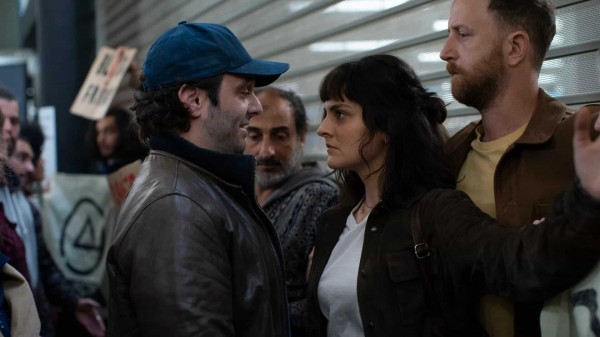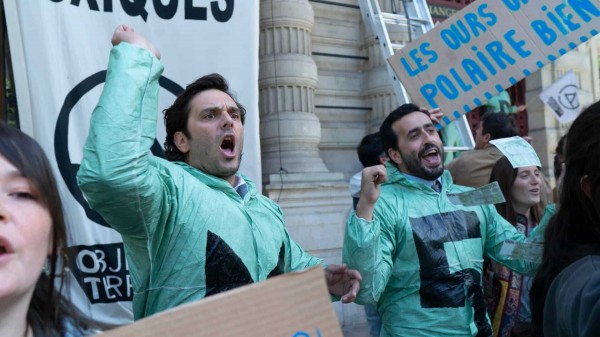This French sub-titled film tells the story of two men, who join a Protest Movement group and take part in radical action after one of them succumbs to the charms of the group’s leader.
UNE ANNEE DIFFICILE (A Difficult Year) Starring: Pio Marmai, Noemie Merlant, Jonathan Cohen, and Gregoire Leprince-Ringuet. Directed by Eric Toledano,and Olivier Nakache. Rated M (Occasional coarse language). 120 min.
Review by Peter Sheehan, Associate of Jesuit Media, Australia
Albert (Pio Marmai) and Bruno (Jonathan Cohen) are drawn into political activism by the promise of free beer and food. They are deeply in debt, and homeless; they owe a lot of money to family, co-workers, and friends; and Bruno has been abandoned by his wife and child, and sleeps rough. They take advantage of what they are able to receive, and Bruno succumbs to the charms of Valentine (Noemie Merlant), a deeply committed and vivacious leader of a group of protesters.
Her group attracts a lot lot media attention, and Albert and Bruno inject humour into whatever they do which motivates the group.

This film’s two directors (Eric Toledano and Olivier Nakache), were responsible for the highly successful, “The Untouchable’s” (2011), which explored the relationship between a youthful caregiver and a disabled man. Like that film, this film blends comedy and drama by mixing sorrow and joy, and in projecting both feeling states, the social needs of the homeless gain added meaning. The film satirises rich people, and those who flaunt “privilege”, and showcases the concerns of the activists by highlighting the fact that protesters care about a wide range of social issues, which include the toxicity of wealth creation, climate warming, and authoritarian controls that misidentify personal struggles in difficult times.
French comedies frequently demonstrate a flair for good situational humour. Albert and Bruno attempt to infiltrate the Bank of France by holding a protest meeting at the bank, when things get spectacularly out of hand; situational comedy also scores in scenes that show Bruno trying to sell give-away airline products to arriving passengers. The film heavily satirises protest groups, but values the messages that lie behind the activism that energise them. However, the film ultimately focuses on social causes rather than human relationships. We never really learn what lies ahead for Albert, Bruno and Valentine, or how homelessness can be socially overcome. A stirring, romantic finale helps, but protest politics are the film’s major thrust.
Peter W. Sheehan is an Associate of Jesuit Media


